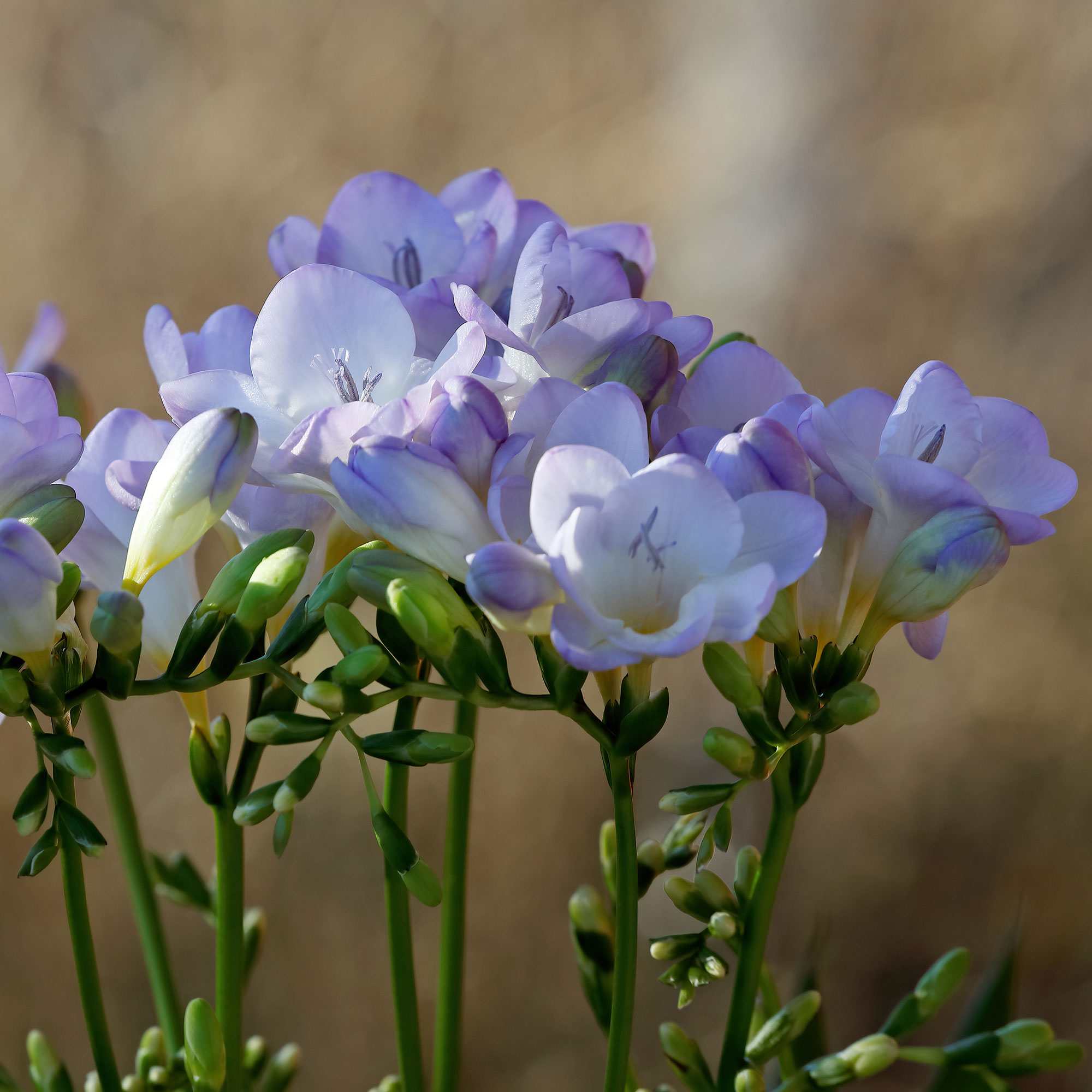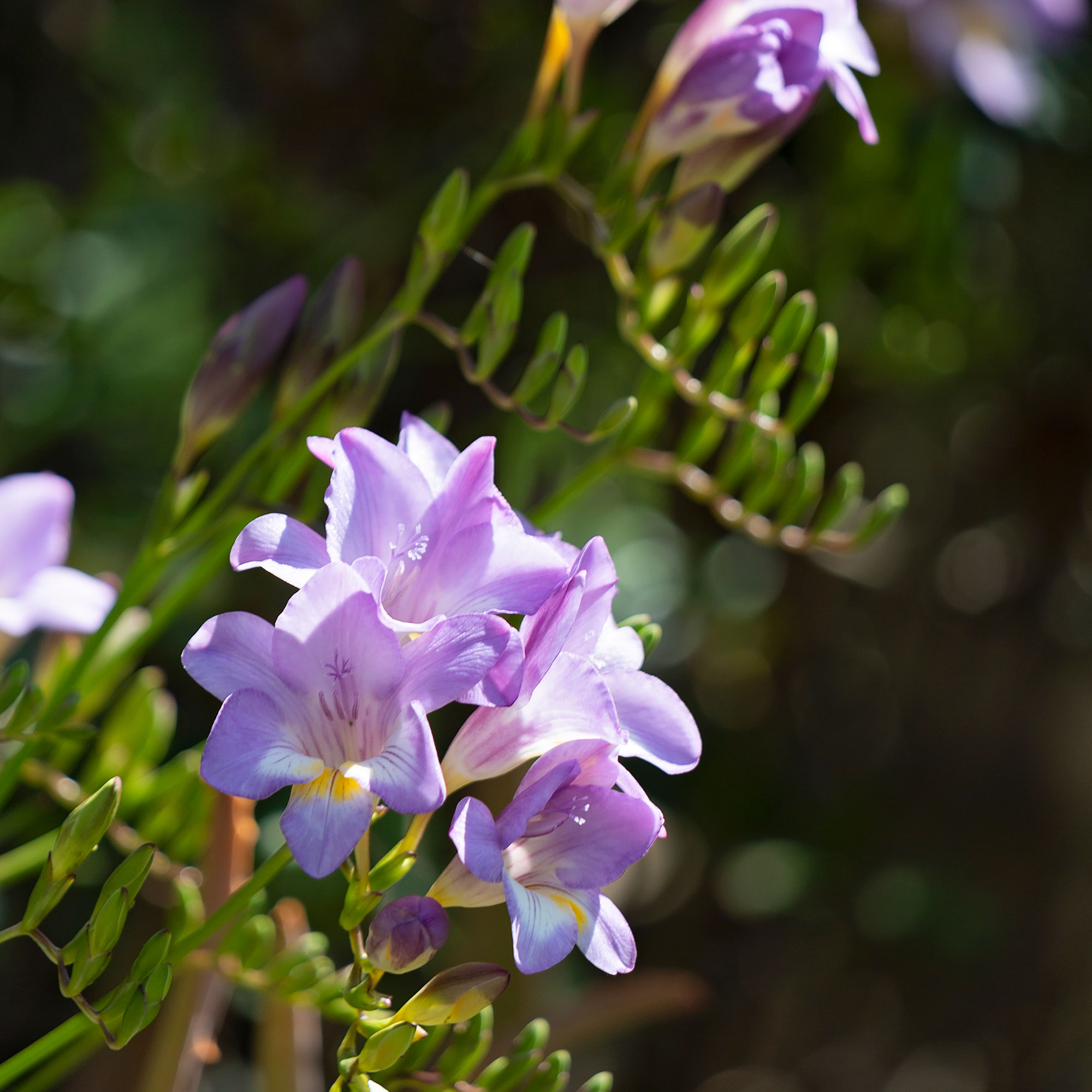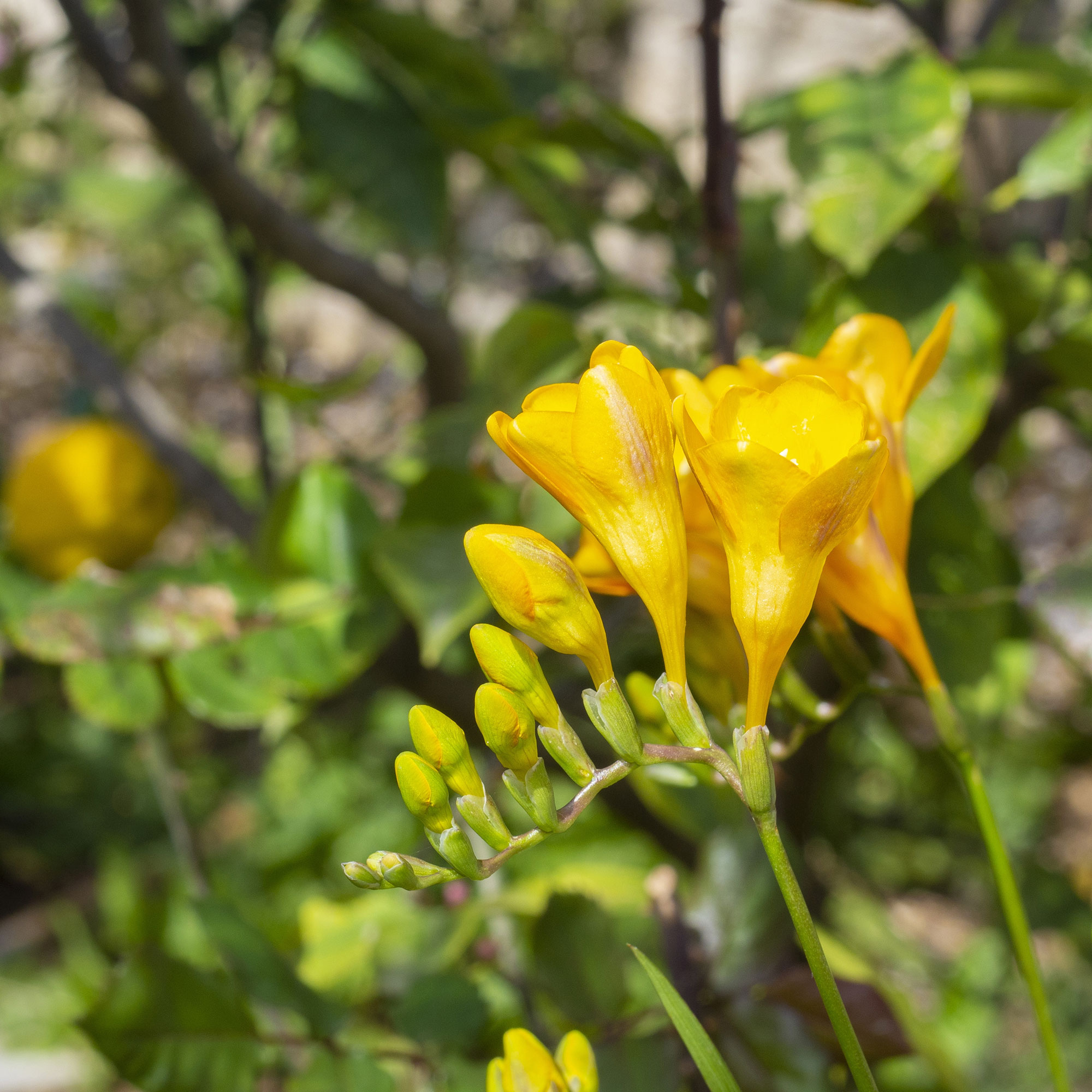
Freesia flowers are said to signify friendship and thoughtfulness, so it's no wonder they make an ideal cut flower or potted plant gift for loved ones.
The herbaceous perennial flowering plants are in the family Iridaceae - that's Iris to you and me. The dainty trumpet-shaped flowers were first recorded in South Africa by Botanist and plant collector, Friedrich Ecklon, during the mid-nineteenth century. He named the flora after his teacher and 'friend' Friedrich Heinrich Theodor Freese. Nearly 200 years later these pretty little plants, also known as 'Cape lily-of-the-valley' are still fashionable and favoured.
If you are looking for full and fragrant summer flowerbed ideas, freesias should be at the top of the plant list. However, the slender sun-worshipers will need warm temperatures and a little extra TLC to bloom.
How to grow freesias
Originating from South Africa means Freesias are sensitive souls that prefer warmer climates. Whether you choose togrow them in a greenhouse or in a warm and sheltered spot outdoors as part of your flower bed, freesias are a delightful choice and the perfect contender for growing a cut flower patch.
'These brightly coloured fragrant flowering plants make a wonderful addition to the garden but they can be temperamental and delicate. The bulbs are very sensitive to the cold and thrive in the sunlight - due to their South African origins,' explains Jamie Shipley - gardening expert and Managing Director of Hedges Direct.

When to plant freesias
Freesias grow from small bulbs called corms. These can be bought as prepared or unprepared corms.
'Prepared corms are heat treated to mimic their natural growing conditions, so these will often provide an early display of flowers,' explains Martin Donnelly, a horticultural expert from LBS Horticulture.
'Unprepared corms can be planted outdoors in milder areas where they can be left in place to flower in spring the following year.'
Freesias are a flower that needs protecting from killer frosts, so plant in March or April if in a greenhouse and in April or May if straight into the ground.
Alternatively, If you are considering planting freesias before frosts hit be sure to research the best plant covers for winter and plant freesia corms in a polytunnel or cloche.
'They can also be planted in September to November undercover for flowers in spring. They will flower about 4 months from planting. Stagger plantings to extend the flowering season,' adds Gardening Expert, Sarah Raven.
How to grow freesias in the ground
When planting freesias directly into the soil, choose a sunny, well-drained spot and plant into holes around 5cm deep.
'Plant them out in April, with the pointed end facing up, 5 cm deep and well spaced apart,' says Jamie Shipley.
Water freesias when planting and then regularly while they grow. Expect to see shoots within 3-4 weeks.
'Newly established freesias need plenty of watering and a liquid fertiliser every few weeks during the growing season, but make sure not to waterlog the soil - which can lead to root rot. As a rule of thumb, water when the top inch of soil feels dry to touch.'

Freesias' tall slender stems and bell-shaped flower heads are unbalanced so they will need holding up. Small stalk stakes with circular top supports are ideal or why not make triangle supports from sticks or cane and twine?
'I also recommend using supports to prop up their slender stems which can become top-heavy with blooms. Once their flowers have faded you need to keep watering and feeding your freesias until the foliage begins to turn brown,' continues Jamie.
How to grow freesias in containers
Due to their extreme dislike of cold temperatures, freesias make a beautiful container idea.
'Freesias should be planted in a warm, sunny position with free-draining soil. So, they’re ideal for growing in pots in conservatories or on porches and patios,' says Fiona Jenkins, Gardening Expert at myjobquote.

To grow freesias in pots choose a container about 11cm deep. Plant around 5 corms in a pot with the tips just above the surface.
'Plant them pointy end up at about 2½-5cm deep,' suggests Sarah Raven. 'Keep them moist and shaded move them to full sunlight when the corms start to sprout.'
'Keep the soil moist and feed with a high-potash fertiliser when you see flower buds appearing,' adds Fiona.
FAQs
Can I grow freesias indoors?
Seeing as they like warmth growing freesias indoors is fairly easy. Just like planting hyacinths, the colourful blooms will look and smell lovely growing in pretty pots on your windowsill.
Online florist Bloom & Wild, say to plant the bulbs in a pot, keep the soil slightly moist and place them in a sunny window for the best results. Water them well during the growth period and you can expect to see them bloom in 10-12 weeks!
'Freesias can be delicate plants and are vulnerable to the cold, so they are usually best grown indoors or in a greenhouse,' agrees Martin Donnelly.
Will freesias return next year?
'Deadhead spent blooms at the base of the flower stalk and once the foliage has yellowed and dried out, you can remove it,' says Fiona Jenkins.
'If your freesia is growing outside, dig up the bulb and store it in a cool, dry place to protect it from frost. It can be replanted the following spring'







